 Petzlover
Petzlover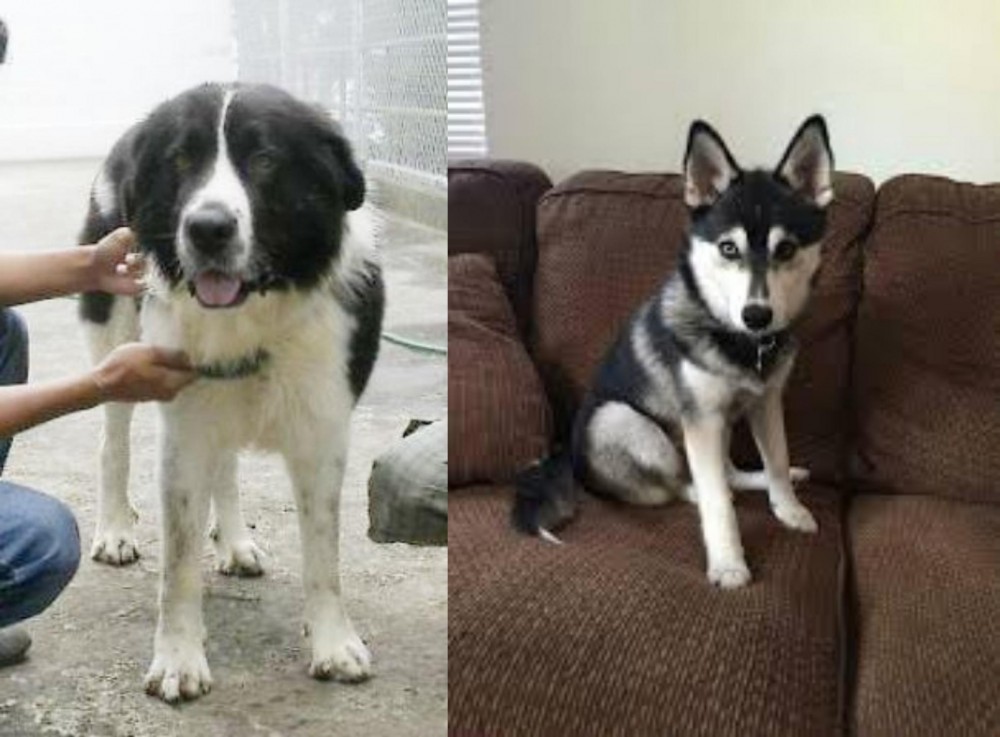 Mucuchies is originated from Venezuela but Pomsky is originated from United States. Mucuchies may grow 31 cm / 13 inches higher than Pomsky. Mucuchies may weigh 47 kg / 104 pounds more than Pomsky. Mucuchies may live 3 years less than Pomsky. Both Mucuchies and Pomsky has almost same litter size. Mucuchies requires Low Maintenance. But Pomsky requires Moderate Maintenance
Mucuchies is originated from Venezuela but Pomsky is originated from United States. Mucuchies may grow 31 cm / 13 inches higher than Pomsky. Mucuchies may weigh 47 kg / 104 pounds more than Pomsky. Mucuchies may live 3 years less than Pomsky. Both Mucuchies and Pomsky has almost same litter size. Mucuchies requires Low Maintenance. But Pomsky requires Moderate Maintenance
 The Mucuchies are a breed born in the Venezuelan mountains, in the late 1700s. They are rare today but were popular in the mountains for hundreds of years. They are believed to be a cross between the dogs brought by the Spanish Conquistadors in the 14th and 15th centuries and the local dogs. However, by the 1960s this rare breed was close to extinction.
The Mucuchies are a breed born in the Venezuelan mountains, in the late 1700s. They are rare today but were popular in the mountains for hundreds of years. They are believed to be a cross between the dogs brought by the Spanish Conquistadors in the 14th and 15th centuries and the local dogs. However, by the 1960s this rare breed was close to extinction.
Bred primarily as herders and watchdogs, their ancestry likely included the Algerian Mastiff, the Spanish Mastiff, the Great Pyrenees, and the Atlas Shepherd, otherwise known as the Aidi. The early development of the Mucuchies is attributed to Wilender Ferrari, DVM. At the time, Simon Boliva was fighting for Venezuelan independence in the city of Mucuchies. He adopted a member of the breed and named it for the city. The name stuck as the name for the breed.
Later in this timeframe, the Mucuchies was crossbred with the Pyrenean Mastiffs that friars brought to the Andes from their monasteries. With them, they also brought the sheep for the dogs to herd and guard. During the 1920s the breed spread throughout the country, but by the beginning of the 1960s there was a major decline in the breed. This was partly due to changes in culture and lifestyle in the Andes.
In 1961 a Mucuchies club was formed for the breed preservation and the breed was formally named the National Dog of Venezuela. The club was disbanded in the mid-1960’s and this led the breed to the edge of extinction. By 2008 there was another major push to save the breed. This effort came from the government who wanted to preserve the breed. In 2008, they created the Fundacion Nevado and sent six Mucuchies to the Waraira Repano Cable Car System in the El Avila National Park so that the dogs would be in a climatic environment as similar to the Andes mountain as possible. This was successful and the program was increased by Venezuelan President Hugo Chavez.
As the breed continued to develop the shepherding instincts were lost and the guarding aspects were strengthened. This left today’s Mucuchies as a breed of gentle, active dogs with strong characters and a loving disposition. They are gentle with their families but protective and aggressive with strangers. They are the only native breed of Venezuela and currently, there are programs in the mountains to re-establish and strengthen them.
In addition to their name for the town of Mucuchie, the breed is also called the Paramo’s Dog or the Snowy. These programs exist because in Venezuela they are near extinction once again. This is the result of inbreeding and more cross-breeding, this time with larger dogs like St. Bernards. Thus, the continued efforts by the Nevado Foundation with the assistance of the government to restore the original Mucuchies breed to Venezuela.
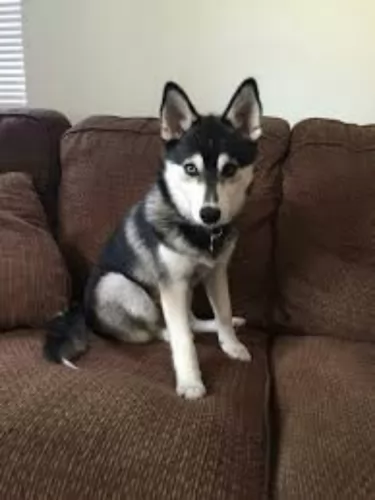 Pomskies are such cute little wolf-like dogs, you just wish they’d been around much sooner.
Pomskies are such cute little wolf-like dogs, you just wish they’d been around much sooner.
They’re a fairly new addition to the breed of designer dogs, believed to have originated in 2009, in the United States. Today they are a well known, and sought after designer dog breed.
They are a cross between the Pomeranian and a Siberian Husky. As a designer dog breeds, the Pomeranian Husky isn’t recognized by the American Kennel Club. There is a Pomsky Club of America and they are wanting to get the breed registered.
 The appearance of the Mucuchies is that of a breed of large dogs who stand two feet at the shoulder and can weight one hundred pounds. They have a deep chest, heads that are wedge-shaped and skulls shaped like domes. Their muzzles are straight, and their nostrils are large on their black nose. The Mucuchies have dark eye and eyelids along with ears that are triangular in shape and medium in size. Their lips are black but this and he has a well-developed ruff.
The appearance of the Mucuchies is that of a breed of large dogs who stand two feet at the shoulder and can weight one hundred pounds. They have a deep chest, heads that are wedge-shaped and skulls shaped like domes. Their muzzles are straight, and their nostrils are large on their black nose. The Mucuchies have dark eye and eyelids along with ears that are triangular in shape and medium in size. Their lips are black but this and he has a well-developed ruff.
They are large, sturdy dogs with a grand appearance and tremendous energy. Their neck is strong, short and very muscular with wide shoulders and a straight back. The tail is much longer than their hocks and it is shaped like a fan and he raises it when he is alerted. They have a short, thick coat and most are white or white with gray, honey or black. This is a very attractive breed.
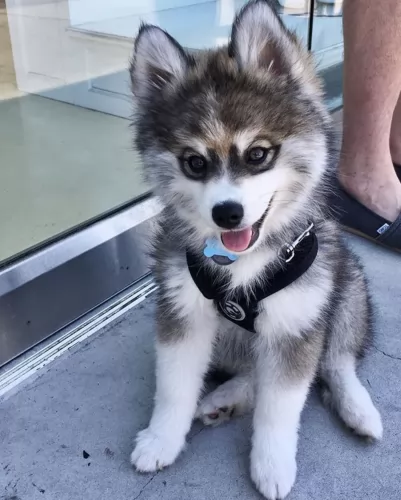 Just like most hybrid breeds, the Pomsky can have mixed looks – taking more after one or the other dog.
Just like most hybrid breeds, the Pomsky can have mixed looks – taking more after one or the other dog.
They can stand between 25 to 40cm in height and weigh between 9 to 14kg. The dog looks like a small Husky, but even so, in one litter, there can be some variety between the puppies in terms of looks and temperament.
The dogs have a soft double coat that keeps the dog comfortable in icy temperatures. Coat colors vary and the coats can be grey and white, a reddish brown or even solid white.
You’ll find your Pomsky to be amusing and entertaining as he is quite clownish.He fits quite easily into life in the city or in the countryside.
Wherever you are, part of being a responsible dog owner includes taking him for walks and seeing that he gets enough exercise. He is a vocal dog, which might not be good in the city if you live near to your neighbors as he can howl and whine quite a bit.
Training and socialization will be important for him, particularly as he tends to be nervous around strangers. Socialization makes him obedient, well balanced an well behaved.
They are playful, loving dogs and intelligent too so you won’t have trouble getting him trained and socialized.
 Good with children and very good with their own families. Might be a little standoffish with others.
Good with children and very good with their own families. Might be a little standoffish with others.
They no longer have the strong herding instinct but are outstanding guard dogs.
Yes but need land to run in. Don’t put this giant dog in an apartment. You will both be miserable.
Very intelligent and their ability and willingness to learn is very good.
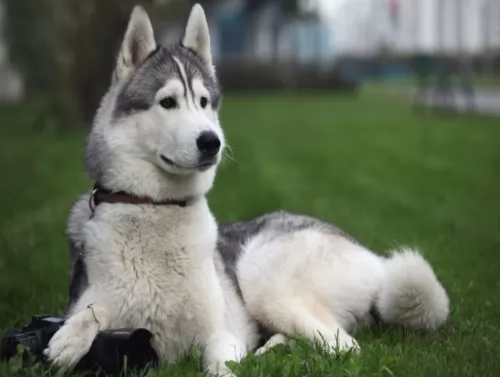 A Pomsky is such a great pet to have. They’re intelligent dogs and respond well to training and socialization.
A Pomsky is such a great pet to have. They’re intelligent dogs and respond well to training and socialization.
They’re playful, confident and full of life and want nothing more than to be an active member of the family. He will need quite a bit of exercise and will love playing with the children in the home.
Provide him with love and care, and you can count him in as a faithful, loving pet and companion.
 Because of their rarity and somewhat isolation, they do not have many genetic health concerns. They do however face at least a couple of the issues that most large dogs face.
Because of their rarity and somewhat isolation, they do not have many genetic health concerns. They do however face at least a couple of the issues that most large dogs face.
This can be a serious issue for such a large dog. It can cause arthritis and lameness.
This might be the biggest threat to the Mucuchies’ health. They are big dogs and if they injury limbs it can be quite serious.
The distension or inversion of the stomach and intestines is potentially fatal and must be treated immediately. Large dogs are prone to bloat and feeding schedules can go a long way in preventing it.
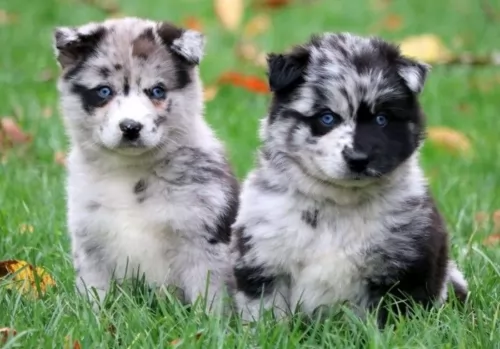 Your Husky and Pomeranian mix promises to be resilient in the face of illness if you feed him well and exercise him. Still, no dog is immune from the many common health issues there are that plague dogs.
Your Husky and Pomeranian mix promises to be resilient in the face of illness if you feed him well and exercise him. Still, no dog is immune from the many common health issues there are that plague dogs.
As a responsible dog owner, as soon as your pet is showing signs of being sick and in distress, you need to get him to the vet. Some common dog illnesses include bloat, cancer, skin allergies and hip dysplasia.
Bloat, also known as Gastric Dilatation and Volvulus:
This can be deadly for dogs, and when you see your dog’s stomach swollen and hard and he is restless and drooling, vet attention is required immediately.
The stomach is twisted and filled with gas that can’t escape. Pressure within the stomach puts pressure on other body organs and this can result in blood flow to the heart being stopped.
There are a number of theories as to why bloat occurs, but it is better to give your pet a couple of smaller meals a day instead of one large one which he gobbles up too quickly.
Its tempting to give your dog a piece of chocolate when he looks so pleadingly at you, but chocolate as well as other human foods can be toxic for your dog.
Chocolate has ingredients which are safe for human consumption but which can lead to a host of medical complications for your dog. Your dog may vomit, have rapid breathing, an increased heart rate and even seizures – it’s just not worth taking the chance.
 As mentioned in health concerns, feeding appropriately is critical to the Mucuchies’ health. Puppies need a high quality, large breed dry food 2-3 times per day at ½ cup each time. Don’t overfeed. Don’t exercise before or after eating to prevent bloat.
As mentioned in health concerns, feeding appropriately is critical to the Mucuchies’ health. Puppies need a high quality, large breed dry food 2-3 times per day at ½ cup each time. Don’t overfeed. Don’t exercise before or after eating to prevent bloat.
The adult Mucuchies should eat at least twice a day for a total of two and one-half cups. So, you might feed one and ¼ cup at each meal. Again, it is critically important that you don’t overfeed. Don’t feed before or after strenuous exercise and don’t let your Mucuchies eat too quickly in order to avoid bloat.
This is a large dog with generally very good health. His stamina and heart will impress you.
The Mucuchies is not an active inside dog, but he is a large dog that needs daily exercise. They need to be able to run or at least to trot. A large yard or dog bark is necessary. However, this big, double coated dog hates the hot weather and needs a cooler climate. Winter is fine with him. Don’t overwork them while they are growing. Walks are the best exercise for this breed.
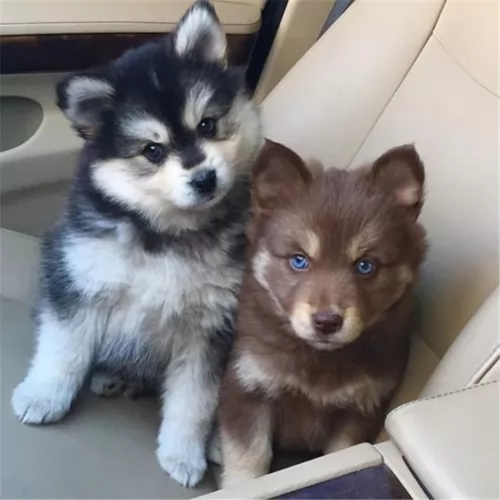 The thick coat sheds quite a bit so it will need to be brushed at least twice a week to keep it vibrant and shiny.
The thick coat sheds quite a bit so it will need to be brushed at least twice a week to keep it vibrant and shiny.
Nails will need to be trimmed regularly if they don’t wear down themselves. You will also need to check your dogs teeth when you brush him. A bad tooth can cause ill health that can damage the heart and kidney.
Your Pomsky is an energetic dog that requires a lot of exercise. While he will love a walk every day, they want more than that – loving to play ball- and frisbee games with all that energy.
Pomsky owners can’t be couch potatoes as this energetic dog will become bored, frustrated and destructive, and then an irresponsible owner blames the dog.
With so much energy, your Pomsky is going to require high quality food that ensures his energy levels remain high. Commercially manufactured dog foods can be wonderfully convenient, and the best ones can be excellent for your pet, with the right balance of vitamins and minerals.
High quality dry kibble can get a bit boring so add in some home-made food to the dry kibble to make it more interesting. Dogs thrive on simplicity, so boiled chicken, sweet potatoes, brown rice or pasta, carrots and spinach will be 100% sufficient for him. This can be chopped up into his dry kibble occasionally as a welcome treat.
Also, your pet will thrive on a bit of raw meat added in from time to time. Make sure he is never without a constant supply of fresh, cool water.